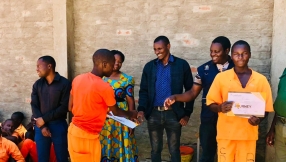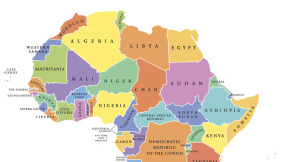Synod spent most of yesterday debating the future of safeguarding and despite the clear lead offered by the Archbishop, the Lead and Assistant Lead Bishops for Safeguarding, the Independent Co-Chair of the Safeguarding Response Group, and the Second Church Estates Commissioner, they chose not to commit themselves to creating fully independent safeguarding structures.
Mr Martin Sewell, a lay member of General Synod, said afterwards, "Today's decision will feel like a 'gut-punch' to many in the survivor community and the people who supported them."
It was a view, echoed by Rt Rev Joanne Grenfell, the Lead Bishop for Safeguarding, who told reporters, "We have missed the opportunity to say unequivocally to victims and survivors today that we hear their concerns about trust and confidence in the Church."
Synod was asked to decide on a 'direction of travel' - to decide whether independent scrutiny of safeguarding decisions was sufficient (leaving day to day operations in the hands of the 84 diocesan, cathedral and other church bodies) or whether to aim for a new independent body, who would employ, oversee and operate safeguarding on the ground).
They chose to do both, sort of, despite being told by those who had spent the last year working on the project that such an approach would take longer, be more complicated and less effective.
Faced with the need for radical change, it appears that Synod stayed in their comfort zone, allowing for independent scrutiny, while only promising to talk about introducing operational independence in the future. The Bishop of Blackburn, who proposed the half-way house approach, told reporters that Synod had made "a very strong gesture in the direction of greater independence in safeguarding".
But after all the scandals and safeguarding failures is another 'gesture' enough?
The Bishop of Rochester, Rt Rev Jonathan Gibbs, who was Lead Bishop for Safeguarding from 2020 to 2023, suggested that it wasn't the structures themselves that would make the biggest difference to the future of safeguarding.
"To rework a well-worn phrase," he said, "'culture eats structure for breakfast'. It wasn't poor structures that prevented the leaders of the Iwerne camps from reporting John Smyth. It wasn't poor structures that led to such a woefully inadequate response to victims when they came forward - and it isn't poor structures that lead to bishops and others not putting victims and survivors at the centre of their focus when making decisions about safeguarding. No, it's culture, most of all a culture focused on the institution of the Church. A culture that is so subtle and so powerful that at times we don't even realize it's happening."
Yesterday's vote would suggest that the desire to protect the institution of the Church won again. As Martin Sewell explained, "For all the pious rhetoric about listening to survivors Synod discounted them, preferring a last minute compromise which came without preparation, or consultation; the interests of the supplier class outweighed those of the consumers - both survivors of abuse and clergy who suffer within bad safeguarding process."













